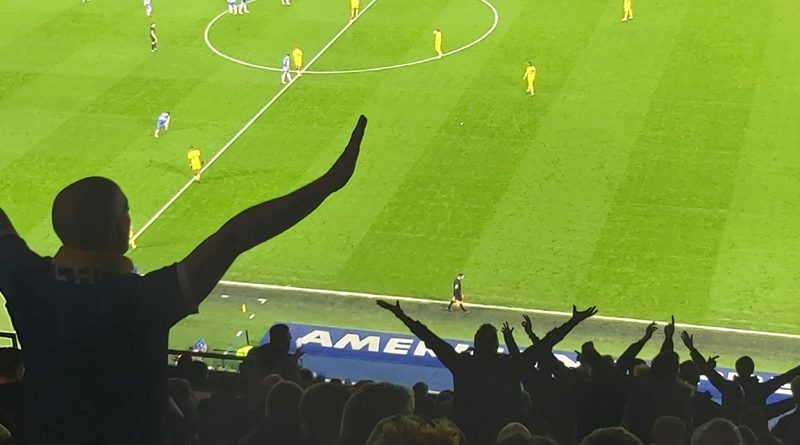Boxing Day and festive football
Why do they play football in England even on New Year’s Eve and Christmas? Who came up with this tradition and who wanted to cancel it?!
These are matches on the day after Catholic Christmas — that is, December 26, but many still habitually call them a 10-day period in late December-early January, when each team plays three to four and sometimes more matches.
One of the main traditions of English football is being constantly criticised, and that’s mainly for the lack of rest for players, while the whole of the football world is resting, but no one has yet decided to encroach on the iconic date in the calendar.
Where did the Boxing Day tradition come from in general?
Initially, Boxing Day is not a football tradition at all. The day after Christmas, representatives of the aristocracy gave gifts to their servants – hence the name “Boxing Day”.
Moreover, they were released from work so that workers could be with their loved ones during the Catholic holiday. For many of them, it was the only opportunity to go to the match of their favourite team. The first match between football clubs in history took place on December 26, 1860 — Sheffield beat Hull 2-0.
The state also helped the traditions — in 1871, the inhabitants of Great Britain were given an extra day off for Christmas — from then until the middle of the 20th century, two matches on December 25-26 became a common thing.
In some hardcore cases, teams had to play three games at once in 48 hours – in the morning and in the evening of Christmas Day and then Boxing Day.
The historian Martin Jones explained the popularity of the tradition as follows: Working-class living places were so uncomfortable and crowded with people that they tried to spend such a rare day outside their apartments, watch football, drink beer, and even place some bets on their favourite teams. Christmas was no exception.
These traditions didn’t change with time, almost all football fans wait for boxing day to do just that, but they clearly use some new betting sites because of the comfort.
The cult status of Boxing Day has grown so much that football on these dates was held even during World War II – German and British soldiers were so tired of fighting that cases were recorded when the warring parties staged matches on battle neutral lanes.
“At Christmas, the British got some footballs out of the trench, so soon we started playing football. It was a real miracle,” the German lieutenant of the Saxon infantry Kurt Zechmisch described these events in his diary.
On Boxing Day, they even try to adjust the schedule as much as possible to minimise movement on departures. Firstly, on Christmas transport does not run so often, and it is not necessary to drive people over long distances on a holiday. Therefore, there are a lot of derbies on this day.
In England, they played football right on Christmas Day until 1958. In such festive matches, the kings were the guys from West Ham — they lost only eight times in 45 games.
The main characters of modern Boxing Day do not play in the Premier League. The lead is held by MK Dons from the third division with 10 wins in 14 matches and a percentage above 70.
Their league rivals from Burton Albion are second with 67%. Manchester United closes the top three with 51 wins in 94 matches (54.3%).
Boxing Day is regularly criticised by coaches for having too busy a schedule
And not only foreign but also homegrown — for example, Sam Allardyce. “The body of a Premier League player wears out quickly. The guys start the season, play without pauses and go to the national teams, in the summer – a tour of Asia and the USA, then training camps – in short, a vicious circle. The players need a two-week break to rest.”
A lot of foreign players complained about the schedule claiming there was not enough time for anything in England: there were three games a week.
On New Year’s Eve, their relatives flew to them. They celebrated on the night of the 31st to the 1st, knowing that there is a game the next day. They all understood that if you have a Premier League game, you don’t really need a New Year.
From the quotes supporting the cancellation of such frequent Boxing Day games by continental coaches, you can collect a separate selection.
Louis van Gaal (from his coaching days at Man United): “The players don’t benefit from the game in two days on the third. And we still have families. I have a wife, children, and grandchildren. And I won’t see them at Christmas.”
Jurgen Klopp (2019): “To hold a match on the 26th and then on the 28th is a crime. This is absolutely not good, and yet it is a reality. There is no reason to give teams less than 48 hours for two matches. The body needs a certain amount of time to be able to work again. This is science. But we completely ignore it.”
Two years later, Klopp hit Boxing Day again – already from the standpoint of the coronavirus outbreak in the Premier League: “We have matches on Wednesday, Sunday and Tuesday. It’s impossible. I don’t have that many players. Perhaps we have 1-2 more infected people in our team. You can’t just try to get through it. Putting matches on December 26 and 28 is unrealistic. We want to play, but we need help.”
Man City coach Pep Guardiola is in similar positions, but so far business is winning: Amazon alone pays about $40 million to the Premier League for 20 December matches.
The revenue from one matchday is also estimated in millions of dollars. So, for example, the income from one regular Manchester United match is almost $2.5 million, but on Boxing Day they are even higher (although no one discloses the exact amounts).
And the British are too conservative to cancel such a tradition. Even Arsene Wenger, who has worked for many years in the Premier League, got into it: “I would cry if Boxing Day was cancelled. It’s part of English traditions and English football.”
“All of Europe comes to England to watch football for the holidays. It’s part of our popularity in the world because no one works at Christmas and everyone watches the Premier League. I want it to continue like this.”
So far, Boxing Day is even stronger than Covid.




